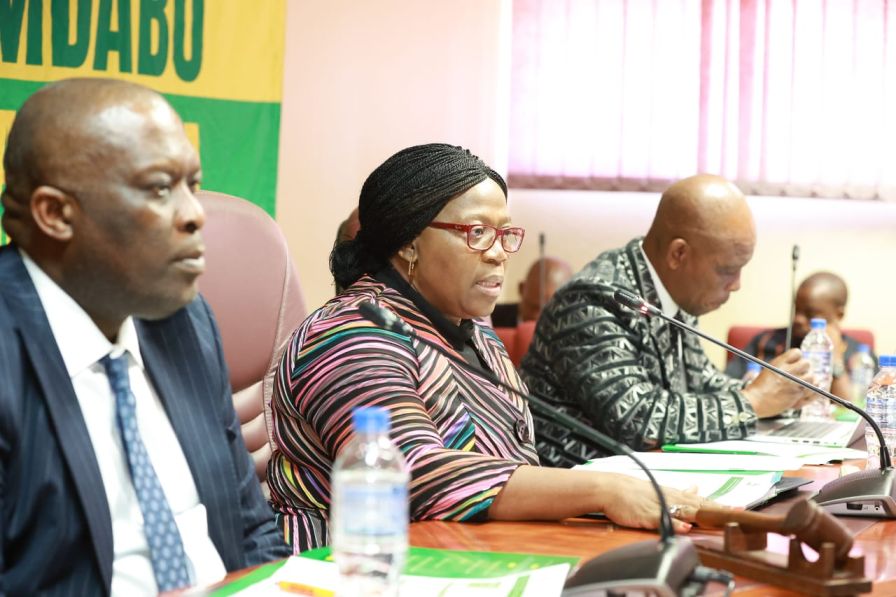As part of the efforts to strengthen the institution of traditional leadership, KwaZulu-Natal MEC for Cooperative governance and traditional affairs, Honourable Bongiwe-Sithole Moloi handed over cell phones to Amakhosi as makes commitments to attend to the matters limiting the functionality of traditional houses.
During a two-day meeting held in Durban that concluded on Friday, members of the KZN Provincial House of Traditional and Khoi-San Leaders presented several issues that they wish to be addressed by the MEC.
Led by Chairperson Inkosi Rupert Sifiso Shinga, members pointed out issues ranging from administrative, development of rural communities, landess chiefs, remuneration of the chiefs, back pay of Izinduna (headmen) and the payment of secretaries of the traditional courts among others.
In response, MEC Sithole-Moloi reassured members of the house that the department had already started paying Izinduna, and the process would continue until all the funds had been disbursed. She also noted the need to rehabilitate Traditional Administrative Centres that were destroyed by the floods accessing the province.
“The issue of support staff to the local houses will be attended to by following government laws that guide the employment of support staff set by the Department of Public Services and Administration. On issues related to land community projects and development, the department will liaise with sister departments to find ways to assist traditional leaders.”
MEC Sithole-Moloi also highlighted that the department has a capacity-building directorate and will consider the skills required by amakhosi to provide appropriate training. She emphised her vision is to move away from issues of support and instead address issues related to community development and intervention that can help their communities.
MEC Sithole-Moloi expressed her gratitude to the members of the house for raising these important issues and assured them that the department is committed to addressing them. She emphasized the need for continued collaboration between the department and traditional leaders to improve service delivery and promote the well-being of communities.
ENDS

